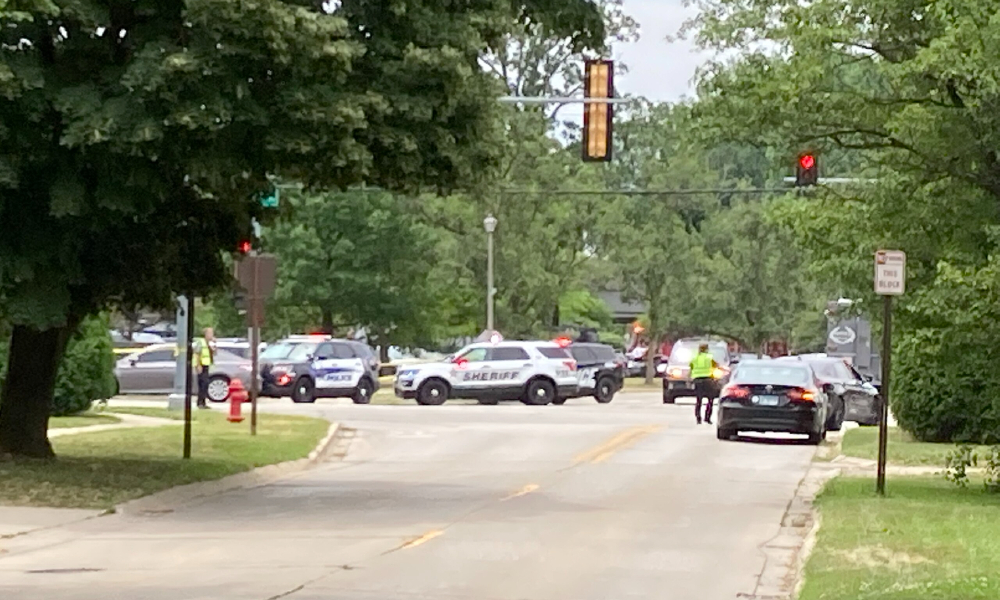Why the Terrorgram Collective Designation Matters

Published by The Lawfare Institute
in Cooperation With

On Jan. 13, the U.S. State Department announced the designation of the Terrorgram Collective, a transnational terrorist group that operates largely online, and three of its leaders, as specially designated global terrorists. The individuals designated—a Brazilian national, a South African national, and a Croatian national—demonstrate the truly transnational nature of the Terrorgram network. The collective has been linked to multiple terrorist plots and attacks: a shooting at an LGBTQI+ bar in Bratislava in October 2022, a plot targeting New Jersey energy facilities in July 2024, a knife attack at a mosque in Türkiye in August 2024, and more.
The State Department’s designation provides the Justice Department with a new avenue to pursue sanctions violations against Terrorgram Collective members. Unlike previous designations of transnational white supremacist groups—such as the Russian Imperial Movement (RIM), which lacked a stable cadre of adherents within the United States—the Terrorgram designation will likely have more immediate ramifications because it targets a group that actively includes American citizens.
The State Department has a long history of identifying terrorist groups and leaders that pose an imminent threat to the United States and limiting them through financial penalties and military action. While the designation list features dozens of more well-known groups such as the Islamic State, al-Qaeda, and Hamas, the State Department’s focus on white supremacist violent organizations has been limited.
The State Department made its initial foray into the white supremacist terror designation arena in 2017, when it announced that its RIM designation marked the “first time the United States has ever designated foreign white supremacist terrorists.” In 2024, the department continued its efforts with the designation of the Nordic Resistance Movement, the largest neo-Nazi group in Sweden. But unlike in the past, this week’s announcement marks the only time a designation could have significant effects on the prosecutions of Americans drawn to transnational white supremacist groups. RIM and Nordic Resistance had little to no traction within the United States, while Terrorgram Collective has a documented track record of having American members.
While this is a new development for U.S. policymakers, foreign partners have made significant strides in addressing transnational white supremacists for the past several years. For example, the violent extremist group known as The Base—whose leader is an American named Rinaldo Nazzaro living in Russia—was designated as a terrorist group by the European Union in 2024, New Zealand in 2022, Australia in 2021, Canada in 2021, and the United Kingdom in 2021. But not yet by the United States. Constitutional protections, and in some cases political calculations, limit the State Department from implementing terrorism designations without a clear transnational nexus.
The Terrorgram designation also adds fuel to the ongoing debate among policymakers and academics about just how pervasive the transnational white supremacist threat is. In 2023, an Office of the Director of National Intelligence (ODNI) Annual Threat Assessment found that transnational racially and ethnically motivated violent extremists (RMVEs) “continue to pose the most lethal threat to U.S. persons and interests, and a significant threat to a number of U.S. allies and partners through attacks and propaganda that espouses violence.”
In that same assessment, ODNI specifically called out Terrorgram Collective, calling it a “transnational forum … to share propaganda, exchange operational guidance, and valorize the perpetrators of previous terrorist attacks.”
It is somewhat surprising that designating Terrorgram took so long. It would be difficult to imagine that the department would lack any sense of urgency with a jihadist equivalent, whether ISIS or another terrorist group. Yet, like ISIS, Terrorgram has a knack for propaganda, producing publications such as “Hard Reset,” which blends attractive aesthetics with a compelling narrative and couches their message alongside the everyday issues and challenges of modern life. Nearly every page of the magazine is aesthetically formatted to be able to serve as standalone propaganda pieces that can circulate independently on social media. Other publications, including “Do It For the Gram” and “Militant Accelerationism” also resonated widely with their intended audience, introducing a new lexicon that is now commonplace among extremists, including the veneration of RMVE terrorists as “Saints,” chief among them the Christchurch attacker Brenton Tarrant.
The Terrorgram designation may be a significant game changer for American citizens, who can now be designated as members of a terrorist group for acts that have been committed domestically, albeit with transnational connections. This has long been true for Americans drawn to groups like al-Qaeda and the Islamic State, but the Terrorgram Collective designation represents the first time that such actions will affect white supremacist movements domestically. Back in September 2024, two U.S. citizens who were identified as leaders of the Terrorgram Collective—Dallas Humber and Matthew Allison—were charged in a 15-count indictment for a range of offenses, including soliciting hate crimes, soliciting the murder of federal officials, and the provision of material support to terrorists. As scholar Graham Macklin highlighted recently, the Terrorgram Collective is an example of the level of influence that U.S. citizens have had on RMVE terrorism abroad, noting that the collective was “accused of directly inciting two individuals to commit acts of terrorism” abroad.
The Terrorgram designation may also have an impact on Atomwaffen Division—a U.S.-based neo-Nazi organization—leader Brandon Russell’s upcoming trial. The Justice Department charged Russell in 2023 with conspiracy to damage an energy facility after planning to carry out an attack on power grids in Maryland. This comes as no surprise as Russell had previously planned an attack on energy facilities and pleaded guilty to similar crimes in 2018. Russell was active in the Terrorgram chats in the past and while on probation for his 2018 conviction. The State Department’s action may provide additional trial fodder to prosecutors seeking to convince a jury to convict Russell yet again.
As transnational white supremacist groups continue to try to recruit Americans to their cause, this designation will have an impact on future domestic terrorism prosecutions. Through more than 20 years of the global war on terrorism, the U.S. was narrowly focused on the threat posed by Sunni jihadist groups and is only recently playing catch up when it comes to RMVE terrorism. The Terrorgram designation is a necessary, yet in and of itself insufficient, step to continuing the fight against white supremacists, neo-Nazis, and other violent extremists.







